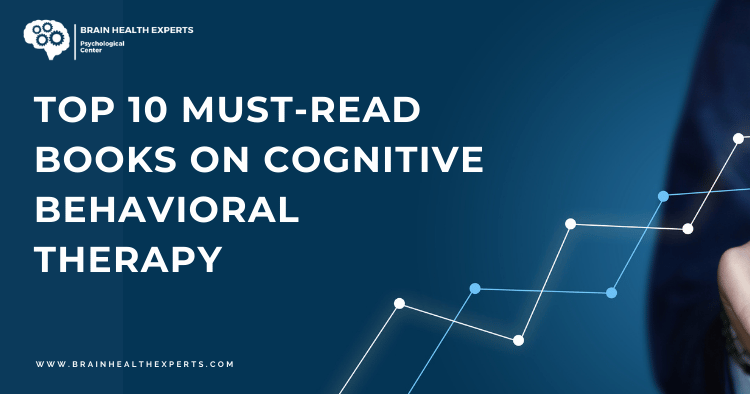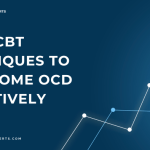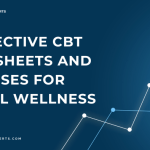Top 10 Must-Read Books on Cognitive Behavioral Therapy
Table of Contents
- Introduction to Cognitive Behavioral Therapy
- 1. “Feeling Good: The New Mood Therapy” by David D. Burns
- 2. “The Feeling Good Handbook” by David D. Burns
- 3. “Cognitive Behavioral Therapy: Basics and Beyond” by Judith S. Beck
- 4. “Mind Over Mood” by Dennis Greenberger and Christine A. Padesky
- 5. “The Anxiety and Phobia Workbook” by Edmund J. Bourne
- 6. “The CBT Toolbox: A Guide for Clients and Clinicians” by Lisa Dion
- 7. “Cognitive Behavioral Therapy for Dummies” by Rhena Branch and Rob Willson
- 8. “The Happiness Trap” by Russ Harris
- 9. “The Body Keeps the Score” by Bessel van der Kolk
- 10. “The Mindful Way Through Depression” by Mark Williams
- Conclusion
- FAQs
Introduction to Cognitive Behavioral Therapy
Cognitive Behavioral Therapy (CBT) is a widely-used psychological treatment that focuses on the interconnections between thoughts, feelings, and behaviors. It aims to help individuals identify and change negative thought patterns that contribute to emotional distress and behavioral problems. Whether you’re new to CBT or looking to deepen your understanding, books can be a fantastic resource. Here’s a list of ten must-read books that provide insight, practical tools, and effective strategies for harnessing the power of CBT.
“Cognitive Behavioral Therapy is not just a treatment; it’s a pathway to understanding the complex relationship between our thoughts and behaviors.”
1. “Feeling Good: The New Mood Therapy” by David D. Burns
This classic work by Dr. David D. Burns has helped millions combat depression through the principles of CBT. The book demystifies the cognitive distortions that lead to negative feelings and offers readers practical exercises to reframe their thoughts. Dr. Burns explains concepts like cognitive restructuring in an accessible manner, making it perfect for both beginners and seasoned readers.
- Why Read It? It’s a foundational text that offers a clear understanding of how thoughts influence feelings and behaviors, accompanied by actionable exercises.
Learn more about Dr. Burns’ work here.
“Feeling Good is like a manual for your mind—retrain your thoughts, and you can change your life.”
2. “The Feeling Good Handbook” by David D. Burns
Also authored by Dr. Burns, this handbook serves as a companion to “Feeling Good.” It provides a more comprehensive exploration of CBT techniques, including worksheets and exercises. The content is designed to help readers actively engage with the material and apply it to their lives, making it a practical guide for self-help.
- Key Takeaway: The book emphasizes the importance of self-monitoring and encourages readers to take charge of their mental health.
Explore more here.
“This handbook is a treasure trove of strategies for anyone looking to take control of their thoughts and emotions.”
3. “Cognitive Behavioral Therapy: Basics and Beyond” by Judith S. Beck
Judith S. Beck, daughter of Aaron Beck (the founder of CBT), presents an in-depth overview of CBT principles in this essential guide. The book is rich with case studies, making it a valuable resource for both practitioners and those curious about the therapeutic process. It explains foundational concepts while providing guidance on implementing CBT strategies.
- Recommended For: Beginners wanting a thorough introduction, as well as therapists seeking a solid reference guide.
Check it out here.
“This book is not just for professionals; it’s an enlightening read for anyone interested in understanding the power of their thoughts.”
4. “Mind Over Mood” by Dennis Greenberger and Christine A. Padesky
This workbook is designed to be a hands-on supplement to therapy sessions. With practical exercises, readers learn to manage their emotions and cope with challenges by changing their thought patterns. The structured format encourages users to apply CBT techniques in real-time, making it an effective tool for personal development.
- User-Friendly: The book includes worksheets that facilitate self-exploration and tracking progress.
Learn more about it here.
“Mind Over Mood empowers you to take control of your emotional health through actionable steps and reflective exercises.”
5. “The Anxiety and Phobia Workbook” by Edmund J. Bourne
A must-read for anyone dealing with anxiety, this workbook offers a comprehensive approach to understanding and overcoming anxiety disorders. Bourne integrates CBT with relaxation and mindfulness techniques, providing a multifaceted approach to healing.
- Why It Stands Out: It provides step-by-step exercises tailored to different anxiety issues, making it applicable to various situations.
Find more information here.
“This workbook is like having a personal coach for your mental health, guiding you through the maze of anxiety.”
6. “The CBT Toolbox: A Guide for Clients and Clinicians” by Lisa Dion
This toolbox is an invaluable resource for both therapists and clients, offering a plethora of worksheets, exercises, and strategies designed to enhance CBT practice. Dion’s approach is practical and user-friendly, making it easy to integrate into therapy sessions or self-help routines.
- Perfect For: Those looking for a comprehensive set of tools to apply CBT principles effectively.
Explore the toolbox here.
“The CBT Toolbox is your go-to guide for practical strategies that make cognitive-behavioral techniques accessible to everyone.”
7. “Cognitive Behavioral Therapy for Dummies” by Rhena Branch and Rob Willson
True to the “For Dummies” series, this book breaks down CBT concepts into digestible bites. It provides a clear overview of CBT techniques and demonstrates how to apply them in everyday life. The friendly tone and straightforward explanations make it an excellent starting point for those unfamiliar with therapy.
- Highlight: It covers a range of mental health issues, including anxiety, depression, and stress management.
Check it out here.
“Cognitive Behavioral Therapy for Dummies is like having a friendly guide to navigate the complexities of your thoughts and feelings.”
8. “The Happiness Trap” by Russ Harris
This engaging book introduces Acceptance and Commitment Therapy (ACT), a form of CBT that emphasizes mindfulness and acceptance. Harris discusses how to defuse negative thoughts and live a more fulfilling life by aligning actions with values.
- Key Insight: It challenges the myth that happiness is the ultimate goal and instead focuses on living a meaningful life.
Learn more about it here.
“The Happiness Trap encourages you to redefine what it means to live well, steering you away from the pursuit of happiness towards a life of purpose and fulfillment.”
9. “The Body Keeps the Score” by Bessel van der Kolk
While primarily focused on trauma and its effects on the body and mind, this book incorporates CBT principles into its exploration of healing. Van der Kolk discusses innovative therapies that address trauma, making it a crucial read for understanding the psychological impact of trauma and how to overcome it.
- Why It’s Important: It provides insights into the mind-body connection, emphasizing the role of CBT in trauma recovery.
Discover more here.
“The Body Keeps the Score is a profound exploration of how our experiences shape our minds, and how we can reclaim our lives through understanding.”
10. “The Mindful Way Through Depression” by Mark Williams
This book combines mindfulness practices with CBT techniques to address depression. Williams and his co-authors present a structured program designed to help individuals break the cycle of depressive relapse. The integration of mindfulness offers readers additional skills for managing their mental health.
- Takeaway: It emphasizes the importance of being present and aware of one’s thoughts without judgment.
Explore the book here.
“The Mindful Way Through Depression”





